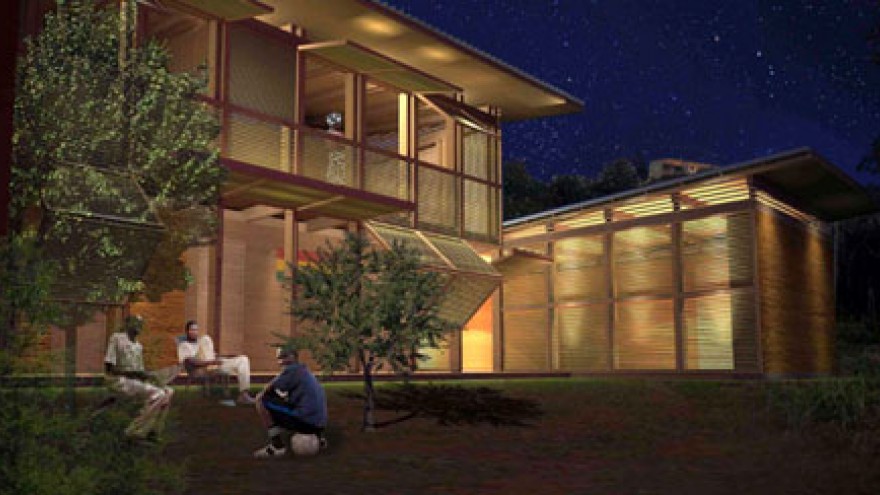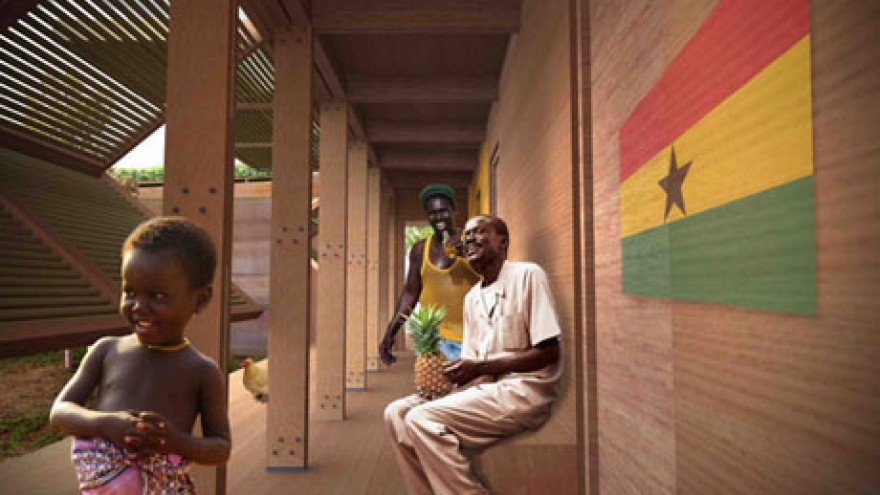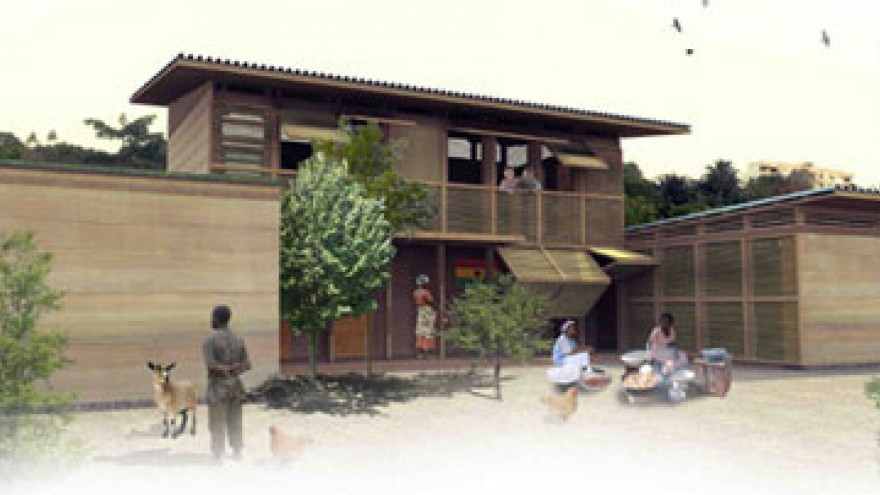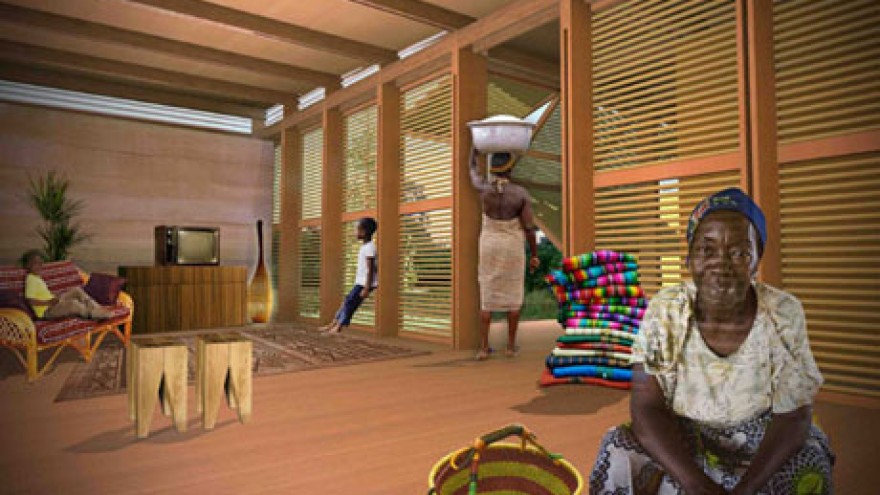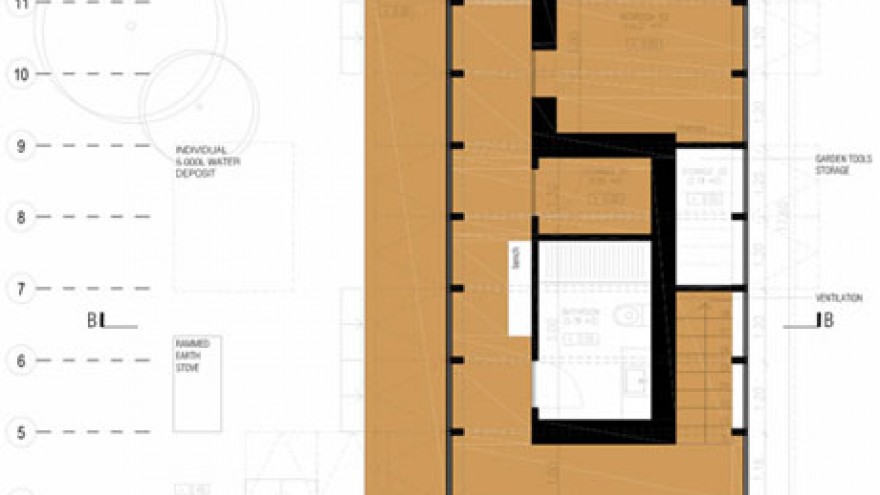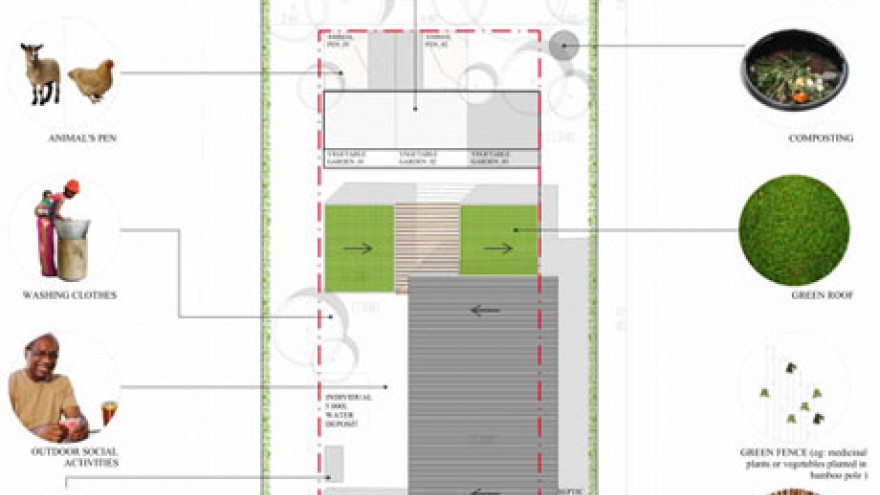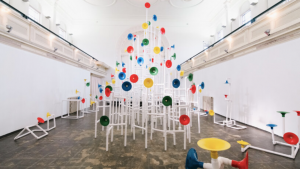Low-cost, large-scale, sustainable housing solutions for low-income countries is one of the biggest challenges facing designers from various disciplines.
The OS House Design Competition was a call to arms by Open Source, a non-profit organisation committed to finding sustainable and economically viable housing solutions for low-income countries. Designs had to be affordable, flexible and modular so that the house can be expanded when money becomes available.
“Emerging Ghana” was the winning design by Ana Morgado, João Caeiro, Lara Camilla Pinho, Maria de Paz Sequeira Braga and Maria de Carmo Caldeira, a collaboration of designers from Portugal, Mexico and Brazil. “Emerging Ghana” is an ideal dwelling for a single family from Ghana’s emerging middle class, it is easily adaptable, and makes use of natural and energy efficient building materials.
The design is based on the Ashanti compound idea of a courtyard building with a deep structure and large overhangs that promote natural ventilation. Adding to the eco friendliness is the fact that all the materials needed for building can be locally sourced. Local people will also be trained to build the homes, equipping them with a new skill set while boosting the local economy.
It is estimated that the house will cost about two-thirds of the current cost of middle income housing in this country. With scale benefits this cost would obviously drop even further. The house will be built using local materials such as bamboo and a local wood, dahoma, for the lightweight panels.
Cameron Sinclair, founder of Architecture for Humanity, said at the OS House Design Competition awards ceremony that the worldwide housing problem had to be solved together and emphasised the importance of designing to make a difference, or: “Design like you give a damn.”

